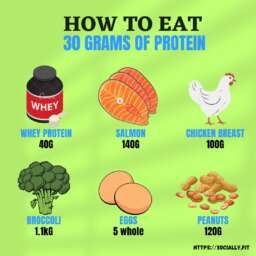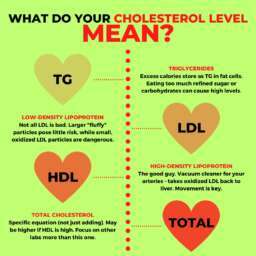Apple Cider Vinegar Recipe for Fat Loss: Benefits, Risks, and Usage Tips
Introduction to Apple Cider Vinegar
Apple cider vinegar has gained popularity as a natural remedy for various health issues, including weight loss. It is made by fermenting apple cider, resulting in the formation of acetic acid and other beneficial compounds. While apple cider vinegar is not a miracle cure, incorporating it into your diet can offer several potential benefits, particularly for those looking to shed excess pounds.
Apple Cider Vinegar Recipes for Fat Loss

Basic Apple Cider Vinegar Drink Recipe
Ingredients:
- 1 to 2 tablespoons of apple cider vinegar
- 8 ounces of water
- Optional: 1 teaspoon of honey or a squeeze of lemon juice for flavor
Instructions:
- Start by pouring 8 ounces of water into a glass.
- Add 1 to 2 tablespoons of apple cider vinegar to the water.
- Optionally, add 1 teaspoon of honey or a squeeze of lemon juice for added flavor.
- Stir the mixture well until everything is thoroughly combined.
- Enjoy your apple cider vinegar drink before meals to help curb appetite and support digestion.
Note:
- It’s important to start with small amounts of apple cider vinegar and gradually increase as tolerated.
- Be sure to dilute the apple cider vinegar with water to prevent potential irritation to the throat or stomach lining.
- Consider using a straw to drink the mixture or rinsing your mouth afterward to protect tooth enamel from erosion.
Feel free to adjust the recipe according to your taste preferences and dietary needs!
Apple Cider Vinegar Recipe for Fat Loss
Apple Cider Vinegar and Honey Detox Drink
Ingredients:
- 1 tablespoon of apple cider vinegar
- 1 tablespoon of honey
- 8 ounces of warm water
Instructions:
- Start by heating 8 ounces of water until warm but not boiling.
- In a glass, combine 1 tablespoon of apple cider vinegar with 1 tablespoon of honey.
- Pour the warm water over the mixture.
- Stir well until the honey and apple cider vinegar are fully dissolved.
- Optionally, you can add a squeeze of lemon juice for extra flavor and detoxifying benefits.
- Enjoy this soothing detox drink to cleanse the body of toxins, aid digestion, and kickstart your metabolism.
Note:
- It’s essential to use raw, unfiltered apple cider vinegar with the “mother” for maximum health benefits.
- Start with smaller amounts of apple cider vinegar if you’re not accustomed to its taste, and gradually increase as desired.
- Feel free to adjust the amount of honey or add other ingredients like ginger or cinnamon for additional flavor and health benefits.
This Apple Cider Vinegar and Honey Detox Drink is a refreshing way to support your body’s natural detoxification process and promote overall well-being. Enjoy it as part of your daily routine for a rejuvenating boost!
Apple Cider Vinegar Recipe for Fat Loss
Apple Cider Vinegar and Lemon Juice Morning Tonic
Ingredients:
- 1 tablespoon of apple cider vinegar
- 1 tablespoon of freshly squeezed lemon juice
- 8 ounces of water
- Dash of ground cinnamon (optional)
- Honey or maple syrup to taste (optional)
Instructions:
- Start by heating 8 ounces of water until warm but not boiling.
- In a glass, combine 1 tablespoon of apple cider vinegar with 1 tablespoon of freshly squeezed lemon juice.
- Pour the warm water over the mixture.
- Optionally, add a dash of ground cinnamon for extra flavor and health benefits.
- If desired, sweeten the tonic with honey or maple syrup to taste.
- Stir well until all ingredients are thoroughly mixed.
- Sip and enjoy this invigorating morning tonic to kickstart your metabolism, boost energy levels, and promote overall well-being.
Note:
- Use raw, unfiltered apple cider vinegar with the “mother” for maximum health benefits.
- Adjust the amount of lemon juice, sweetener, or cinnamon according to your taste preferences.
- Drink this tonic on an empty stomach in the morning for best results.
- Incorporate this tonic into your daily routine as part of a healthy lifestyle.
This Apple Cider Vinegar and Lemon Juice Morning Tonic is a refreshing and revitalizing way to start your day off on the right foot. Enjoy its tangy flavor and numerous health benefits as you embark on a journey towards wellness!
Apple Cider Vinegar Recipe for Fat Loss
Understanding its Benefits for Weight Loss

The Role of Apple Cider Vinegar in Fat Loss
Apple cider vinegar has garnered attention as a potential aid in the quest for weight loss. While it’s not a magical solution on its own, incorporating apple cider vinegar into your diet may offer several benefits that support fat loss efforts.
1. Appetite Suppression:
One of the primary ways apple cider vinegar may contribute to fat loss is by helping to suppress appetite. The acetic acid in apple cider vinegar has been shown to increase feelings of fullness and satiety, which can lead to reduced calorie intake over time.
2. Metabolic Boost:
Some studies suggest that apple cider vinegar may help to increase metabolic rate, thereby enhancing fat burning and calorie expenditure. By promoting a faster metabolism, apple cider vinegar may support weight loss efforts by helping the body burn more calories throughout the day.
3. Blood Sugar Regulation:
Maintaining stable blood sugar levels is essential for managing weight, as spikes and crashes in blood sugar can lead to increased hunger and cravings. Apple cider vinegar has been found to improve insulin sensitivity and lower blood sugar levels after meals, potentially reducing the risk of overeating and promoting fat loss.
4. Enhanced Fat Oxidation:
Research indicates that apple cider vinegar may also enhance fat oxidation, the process by which the body breaks down fat for energy. By increasing fat oxidation, apple cider vinegar may help the body more efficiently utilize stored fat for fuel, leading to greater fat loss over time.
5. Digestive Support:
Proper digestion is crucial for effective weight management, as it ensures that nutrients are absorbed efficiently and waste is eliminated from the body. Apple cider vinegar may aid digestion by promoting the production of stomach acid, which helps break down food and facilitate nutrient absorption.
6. Reduced Bloating and Water Retention:
Excess bloating and water retention can make you feel heavier and hinder your weight loss progress. Apple cider vinegar’s diuretic properties may help to reduce bloating and water retention, leading to a leaner appearance and a more accurate reflection of your true weight.
Incorporating apple cider vinegar into your daily routine as part of a balanced diet and healthy lifestyle may complement your fat loss efforts and support overall well-being. However, it’s essential to use apple cider vinegar responsibly and in moderation, as excessive consumption may lead to adverse effects such as digestive issues and tooth enamel erosion.
How Apple Cider Vinegar Affects Metabolism
Apple cider vinegar has been touted for its potential to boost metabolism, which can play a significant role in weight management and fat loss. While the exact mechanisms are not fully understood, several factors contribute to how apple cider vinegar may influence metabolism:
1. Increased Caloric Expenditure:
Studies suggest that consuming apple cider vinegar may lead to a modest increase in metabolic rate, resulting in higher caloric expenditure throughout the day. This means that your body may burn more calories even at rest, helping to support weight loss efforts.
2. Improved Fat Oxidation:
Apple cider vinegar has been shown to enhance fat oxidation, the process by which the body breaks down fat for energy. By increasing fat oxidation, apple cider vinegar may help the body more efficiently utilize stored fat as fuel, which can aid in weight loss and fat loss.
3. Enhanced Insulin Sensitivity:
Insulin plays a crucial role in regulating metabolism by controlling the uptake of glucose into cells for energy production. Research suggests that apple cider vinegar may improve insulin sensitivity. As a result it allows cells to better respond to insulin and effectively utilize glucose for energy, rather than storing it as fat.
4. Reduced Fat Accumulation:
Animal studies have indicated that apple cider vinegar consumption may help to inhibit the accumulation of fat in the body by suppressing the genes responsible for fat storage. By preventing excess fat accumulation, apple cider vinegar may support a healthy metabolism and promote weight management.
5. Appetite Regulation:
Maintaining a healthy metabolism also involves regulating appetite and food intake. Apple cider vinegar has been shown to increase feelings of fullness and satiety. It can help control cravings and prevent overeating. By promoting appetite regulation, apple cider vinegar may indirectly support a healthy metabolism and aid in weight loss efforts.
While apple cider vinegar may offer potential benefits for metabolism and weight management. It’s essential to use it as part of a balanced diet and healthy lifestyle. Incorporating apple cider vinegar into your routine, along with regular exercise and nutritious eating habits, can help maximize its potential effects on metabolism and overall well-being.
Apple Cider Vinegar Recipe for Fat Loss
Incorporating Apple Cider Vinegar into Your Diet

Usage Tips and Precautions
While apple cider vinegar can offer several potential health benefits, it’s essential to use it responsibly and with caution. Here are some usage tips and precautions to keep in mind:
1. Start Slowly:
If you’re new to consuming apple cider vinegar, start with small amounts and gradually increase as tolerated. Begin with 1 teaspoon to 1 tablespoon diluted in water and assess your body’s response before increasing the dosage.
2. Dilute Properly:
To prevent potential irritation to the throat or stomach lining, always dilute apple cider vinegar with water before consuming it. Mix 1 to 2 tablespoons of apple cider vinegar in 8 ounces of water for a safe and effective dose.
3. Protect Tooth Enamel:
Apple cider vinegar is acidic and may erode tooth enamel if consumed undiluted or in large quantities. To protect your dental health, consider drinking apple cider vinegar through a straw and rinsing your mouth with water afterward.
4. Monitor Symptoms:
Pay attention to how your body responds to apple cider vinegar consumption. If you experience any adverse effects such as digestive discomfort, heartburn, or throat irritation, discontinue use and consult a healthcare professional.
5. Use High-Quality Products:
Choose raw, unfiltered apple cider vinegar with the “mother” for maximum health benefits. Look for organic varieties that contain natural sediment and enzymes, which indicate a higher quality product.
6. Consider Timing:
Some people prefer to consume apple cider vinegar before meals to help improve digestion and reduce appetite. Experiment with different timing to see what works best for you and fits into your daily routine.
7. Consult a Healthcare Professional:
If you have any underlying health conditions or concerns, or if you’re taking medications, it’s essential to consult with a healthcare professional before incorporating apple cider vinegar into your diet. They can provide personalized advice based on your individual health needs.
By following these usage tips and precautions, you can safely incorporate apple cider vinegar into your routine and maximize its potential health benefits while minimizing any potential risks.
Other Ways to Use Apple Cider Vinegar in Cooking
While apple cider vinegar is commonly used in beverages and dressings, it can also add flavor and acidity to a wide range of dishes. Here are some creative ways to incorporate apple cider vinegar into your cooking:
1. Marinades and Sauces:
Use apple cider vinegar as a key ingredient in marinades for meats, poultry, or tofu. Its acidity helps tenderize the protein while infusing it with flavor. You can also use apple cider vinegar as a base for tangy sauces and glazes to accompany grilled or roasted dishes.
2. Pickling and Fermentation:
Apple cider vinegar is a staple ingredient in pickling brines and fermentation recipes. Use it to pickle vegetables like cucumbers, onions, or carrots for a crisp and tangy addition to salads, sandwiches, or charcuterie boards. You can also ferment foods like sauerkraut or kimchi using apple cider vinegar as part of the fermentation process.
3. Baking and Desserts:
Incorporate apple cider vinegar into baked goods like cakes, muffins, and bread for added moisture and a subtle tangy flavor. It can also be used in fruit compotes, jams, and chutneys to balance sweetness and acidity. It helps in creating a complex and flavorful accompaniment to desserts.
4. Salad Dressings and Vinaigrettes:
Create homemade salad dressings and vinaigrettes using apple cider vinegar as the acidic component. Combine it with olive oil, mustard, honey, herbs, and spices for a versatile dressing that pairs well with a variety of salads and vegetables. Experiment with different flavor combinations to suit your taste preferences.
5. Soups and Stews:
Add a splash of apple cider vinegar to soups, stews, and braises to brighten flavors and balance richness. It can help cut through the richness of meat-based dishes or add depth to vegetarian soups and broths. Start with a small amount and adjust to taste to avoid overpowering the other ingredients.
6. Drizzled Over Roasted Vegetables:
Finish roasted vegetables like Brussels sprouts, sweet potatoes, or cauliflower with a drizzle of apple cider vinegar for a burst of acidity and flavor. The vinegar adds brightness and helps elevate the dish, making it more vibrant and appealing.
By incorporating apple cider vinegar into your cooking in these creative ways. You can enhance the flavor and nutritional profile of your dishes while reaping the potential health benefits of this versatile ingredient.
Apple Cider Vinegar Recipe for Fat Loss
Potential Risks and Side Effects

While apple cider vinegar can offer several health benefits when used in moderation, it’s essential to be aware of potential risks and side effects associated with its consumption. Here are some considerations to keep in mind:
1. Digestive Issues:
Consuming apple cider vinegar in large amounts or on an empty stomach may cause digestive discomfort, including nausea, bloating, and indigestion. Start with small doses and gradually increase as tolerated to minimize the risk of gastrointestinal issues.
2. Tooth Enamel Erosion:
Apple cider vinegar is acidic and may erode tooth enamel if consumed undiluted or in large quantities. To protect your dental health, always dilute apple cider vinegar with water before drinking it and consider using a straw to minimize contact with teeth.
3. Throat Irritation:
Drinking apple cider vinegar undiluted or in concentrated form may cause irritation to the throat and esophagus. To prevent discomfort, always dilute apple cider vinegar with water before consumption and avoid drinking it straight.
4. Interactions with Medications:
Apple cider vinegar may interact with certain medications, including diuretics, insulin, and potassium-lowering drugs. If you’re taking medications, consult with a healthcare professional before incorporating apple cider vinegar into your routine to ensure it’s safe for you.
5. Low Potassium Levels:
Excessive consumption of apple cider vinegar may lead to low potassium levels in the body, known as hypokalemia. This can cause symptoms such as muscle weakness, fatigue, and irregular heart rhythms. Be mindful of your intake and consider monitoring your potassium levels if you consume apple cider vinegar regularly.
6. Skin Irritation:
Topical application of undiluted apple cider vinegar may cause skin irritation, especially for those with sensitive skin or existing skin conditions. Always dilute apple cider vinegar with water before using it on the skin and perform a patch test to check for any adverse reactions.
7. Allergic Reactions:
While rare, some individuals may experience allergic reactions to apple cider vinegar, particularly if they have allergies to apples or other fruits. If you develop symptoms such as hives, itching, or swelling after consuming apple cider vinegar, discontinue use and seek medical attention.
By being aware of these potential risks and side effects, you can use apple cider vinegar safely and responsibly as part of a balanced diet and healthy lifestyle. If you have any concerns or experience adverse reactions, consult with a healthcare professional for personalized advice and guidance.
Apple Cider Vinegar Recipe for Fat Loss
Conclusion

In conclusion, apple cider vinegar has emerged as a popular natural remedy with potential benefits for health and weight management. While research on its effectiveness is ongoing, incorporating apple cider vinegar into your diet in moderation may offer several advantages, including appetite suppression, metabolic boost, and blood sugar regulation.
However, it’s essential to use apple cider vinegar responsibly and be mindful of potential risks and side effects such as digestive issues, tooth enamel erosion, and interactions with medications. Start with small doses, dilute it with water, and monitor your body’s response to ensure safety and effectiveness.
By combining apple cider vinegar with a balanced diet, regular exercise, and other healthy lifestyle habits, you can maximize its potential benefits and support your overall well-being.
Apple Cider Vinegar Recipe for Fat Loss
Frequently Asked Questions (FAQs)
- Is apple cider vinegar a miracle cure for weight loss? While apple cider vinegar may offer potential benefits for weight management, it’s not a miracle cure on its own. It should be used as part of a balanced diet and healthy lifestyle.
- How much apple cider vinegar should I consume daily for fat loss? There’s no one-size-fits-all answer, but starting with 1 to 2 tablespoons diluted in water per day is a common recommendation. Adjust the dosage based on your tolerance and body’s response.
- Can I use apple cider vinegar if I have digestive issues? Some people with digestive issues may find that apple cider vinegar exacerbates their symptoms. Start with small amounts and monitor how your body reacts.
- Are there any medications that interact with apple cider vinegar? Yes, apple cider vinegar may interact with certain medications, including diuretics, insulin, and potassium-lowering drugs. Consult with a healthcare professional if you’re taking medications.
- Can I use apple cider vinegar for fat loss if I have diabetes? Individuals with diabetes should use apple cider vinegar cautiously, as it may affect blood sugar levels. Monitor your blood sugar closely and consult with a healthcare professional before using it regularly.
Click here to learn more about weight loss and workout videos.















2 thoughts on “Apple Cider Vinegar Recipe for Fat Loss”